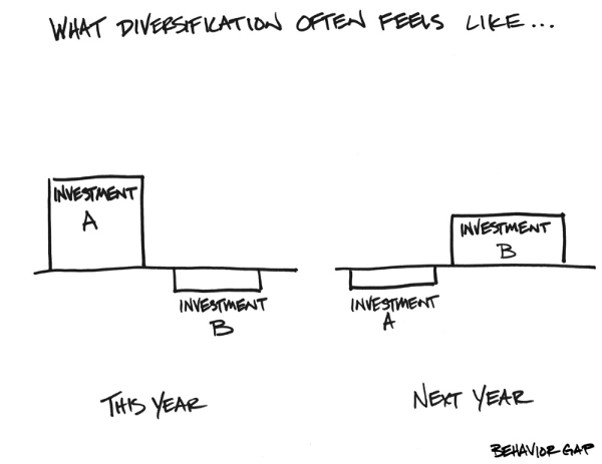Why Invest When The Stock Market Is At An All Time High?
 Over the last two decades, the U.S. stock market has repeatedly been making new highs. As a result, this has been a relatively common question that I’ve heard from clients throughout my career. For a client with money to invest, it’s a natural one to ask…”if the market is at an all-time high, why should I invest now?“ And this question is relevant today. On February 19, 2020, the S&P 500 index hit an all-time high, closing at 3,386 as part of a historic bull run that began on March 9, 2009. After a dramatic drop of 34% in March due to the COVID-19 pandemic, the U.S. stock market quickly recovered and the S&P 500 made a new all time-high on August 18, 2020.1
Over the last two decades, the U.S. stock market has repeatedly been making new highs. As a result, this has been a relatively common question that I’ve heard from clients throughout my career. For a client with money to invest, it’s a natural one to ask…”if the market is at an all-time high, why should I invest now?“ And this question is relevant today. On February 19, 2020, the S&P 500 index hit an all-time high, closing at 3,386 as part of a historic bull run that began on March 9, 2009. After a dramatic drop of 34% in March due to the COVID-19 pandemic, the U.S. stock market quickly recovered and the S&P 500 made a new all time-high on August 18, 2020.1
Clients now are wondering if they’ve already missed the rally or would be better off waiting for a pullback to invest. Or, if they are already invested, they may be considering whether they should sell a portion of their portfolio ahead of a potential downturn. If we drill a bit deeper, “loss aversion” is often the fear behind these thoughts, summarized in the concern of “what if I invest today and I lose money tomorrow?”
Why Diversify When It Doesn't Seem To Be Working?
 Over the last several decades, we’ve seen strong returns from large U.S. companies and a question that many clients have asked is: “Why continue to diversify? Couldn’t we just buy an S&P 500 index fund and get better returns?”
Over the last several decades, we’ve seen strong returns from large U.S. companies and a question that many clients have asked is: “Why continue to diversify? Couldn’t we just buy an S&P 500 index fund and get better returns?”
Dimensional Fund Advisors (DFA) recently posted a terrific blog entitled "A Tale of Two Decades: Lessons for Long-Term Investors" that shares some very insightful data that sheds some light on these important questions.
First, let's look at the numbers over the last decade ... in the chart below, you can see that the S&P 500 (U.S. large cap stocks) had a cumulative return from 2010-2019 that was more than double any of the other listed asset classes. Furthermore, some evidence-based investment managers we use (such as DFA), favor value ("cheap") stocks over growth ("expensive") stocks, as value stocks have been shown to provide excess returns over time. As you can see in the chart below, it wasn't a great decade for value stocks either as the indexes with a value-tilt trailed the market-cap indexes.
Eight Wealth Strategies During the Coronavirus
 “The utility of living consists not in the length of days, but in the use of time.” - Michel de Montaigne
“The utility of living consists not in the length of days, but in the use of time.” - Michel de Montaigne
For better or worse, many of us have had more time than usual to engage in new or different pursuits in 2020. Even if you're as busy as ever, you may well be revisiting routines you have long taken for granted. Let's cover eight ways—some effective and others ineffective—to spend your time shoring up your financial well-being in the time of the coronavirus.
1. A Best Practice: Stay the Course
Many investment habits remain the same as ones we've been advising all along. Build a low-cost, globally diversified investment portfolio with the money you've got earmarked for future spending. Structure it to represent your best shot at achieving your financial goals by maintaining an appropriate balance between risks and expected returns. Stick with it, in good times and bad.
2. A Top Time-Waster: Market-Timing and Stock-Picking
Why have stock markets been ratcheting upward during socioeconomic turmoil? Market theory provides several rational explanations. Mostly, market prices continuously reset according to "What's next?" expectations, while the economy is all about "What's now?" realities. If you're trying to keep up with the market's manic moves ... we recommend that you stop doing that. You're wasting your time.
How To Be Positively Skeptical Part 4: Check the Facts Before You Act

“You can outsource expertise but never your understanding, especially when it comes to your finances.” — Ben Carlson, Don't Fall For It
As we covered in the most recent installment in our “How To Be Positively Skeptical” series, there are only so many hours in the day to do all the fact-checking you’d like to when deciding who and what to believe.
How do you approach this never-ending challenge? We suggest conducting your due diligence like a tournament. First, eliminate the weakest contenders, then conduct deeper due diligence on the finalists.
Truths and Dares
This does NOT mean you should disregard all opposing viewpoints. As you may recall from our last piece, confirmation bias causes us to favor information that supports our beliefs and ignore that which contradicts them. But what if your beliefs are mistaken?
How To Be Positively Skeptical Part 3: How Do You Do Your Due Diligence?

“All media shares one thing: Someone created it. And it was created for a reason. Understanding that reason is the basis of media literacy.” — Common Sense Media
In previous installments of our “How To Be Positively Skeptical” series, we covered the many forces that tease us into falling for misinformation. Bottom line, our brains are hardwired to lead with fight-or-flight instincts ahead of rational resolve. As such, our critical thinking often plays second-fiddle to rash reactions such as fear, excitement, overconfidence, and regret.
In the financial jungle, it’s essential to look before you leap at emotion-triggering misinformation. Here are five “dos” and “don’ts” for doing your best fact-finding due diligence.
1. Do be positively skeptical. In the courthouse, a defendant is presumed innocent until proven guilty. When managing information overload, we recommend you default to exactly the opposite: When in doubt, remain in doubt until you’ve done your due diligence.
Also watch out for confirmation bias. If you want something to be true, you’ll be more inclined to believe it is. Likewise, if you wish something weren’t so, you’ll assume it probably isn’t.